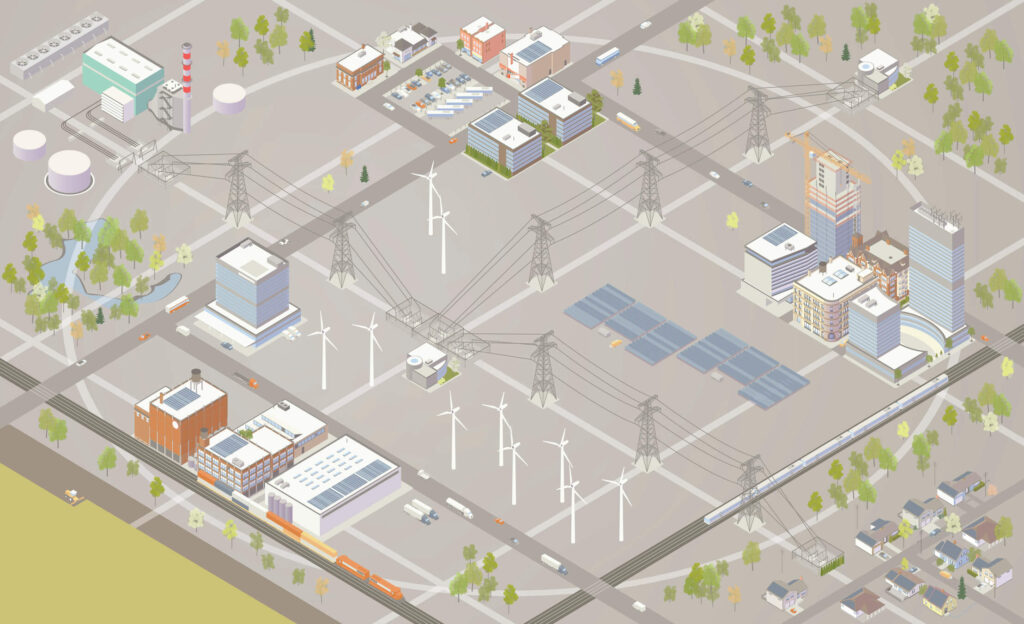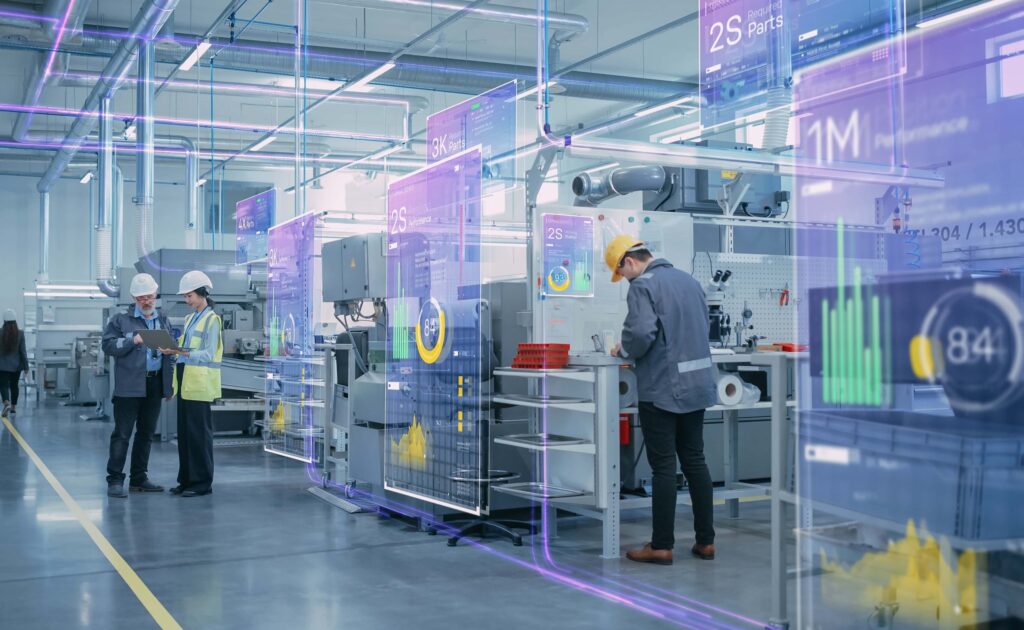Energy optimisation and management have advanced significantly as a result of the growing demand for energy and the need to cut carbon emissions. Artificial Intelligence (AI) is leading the way in these developments, offering creative ways to boost sustainability, cut expenses, and increase efficiency in energy systems. In order to better understand AI’s impact on various industries and future possibilities, this article examines the different roles that AI plays in energy management and optimisation.
The Growth of AI in the Energy Sector
The AI market is expected to increase at a compound annual growth rate of 17.3% from 241.8 billion US dollars in 2023 to over 740 billion US dollars in 2030. From ChatGPT, autonomous vehicles, mixed reality and predictive analytics, artificial intelligence is becoming key in many different industries. The energy sector is no exception.
The energy industry is embracing AI to increase productivity and spur innovation. Smart grids are growing rapidly, and the vast amounts of data they produce are being supported simultaneously by technology in a new way. Besides smart grids, AI is already being used to monitor energy usage in real-time, as well as to manage energy systems more efficiently. AI’s role is also to predict future energy prices and to help companies make decisions about future energy supply and demand. Have a look below at some of the applications of AI in energy management and optimisation.
Applications of AI in Energy Management

AI in Energy Consumption Forecasting: Smart Grids
Accurate energy consumption forecasting is one of the most important uses of AI in energy management. In order to forecast future energy consumption, artificial intelligence systems, in particular machine learning models, examine historical data, weather patterns, and other pertinent variables. By assisting utility companies and grid managers in better balancing supply and demand, this predictive capability lowers the danger of blackouts and ensures a steady supply of energy.
For instance, AI is used by smart grids to improve their dependability and efficiency. Predictive analytics powered by AI can identify demand peaks and modify the distribution appropriately. AI systems, for instance, are able to anticipate spikes in energy use during extreme weather events and proactively distribute loads to avoid grid overloads.
Optimising Energy Production: Wind Turbine Efficiency
AI is crucial for optimising energy production as well, especially for renewable energy sources like solar and wind power. Because these sources are naturally irregular, it is difficult to effectively incorporate them into the energy system. This problem can be solved by AI, which can forecast production output based on weather forecasts and modify grid operations to dynamically match supply and demand.
An example of this is AI algorithms which are able to evaluate wind turbine data in order to forecast maintenance requirements and maximise efficiency. AI systems can provide recommendations for changes to turbine settings that would increase their lifespan and efficiency by seeing trends and anomalies in the operational data.
Enhancing Energy Storage Solutions: Battery Management Systems
Energy storage plays a crucial role in contemporary energy systems by enabling the storage and utilisation of surplus energy generated during periods of low demand. By anticipating energy prices, managing stored energy more efficiently, and optimising charge and discharge cycles, artificial intelligence increases the efficiency of energy storage systems.
Battery performance is tracked and evaluated in real time by AI-driven battery management systems (BMS). These technologies maximise financial gains and guarantee consistent energy availability by anticipating battery deterioration, streamlining charging schedules, and even determining when it is best to buy or sell stored energy based on market conditions.
Improving Energy Efficiency in Buildings: Smart Buildings
Buildings consume a lot of energy, thus maximising their use can help cut down on energy usage overall. Building energy-consuming operations, such as lighting and HVAC (heating, ventilation, and air conditioning) systems, can be automated and optimised by AI.
Real-time occupancy trends, weather, and energy consumption are tracked by AI-powered smart building systems using sensors and data analytics. To preserve comfort while consuming the least amount of energy, these systems can modify lighting, HVAC, and other system settings. AI, for example, has the ability to lower heating and cooling in empty rooms, saving energy and money.
AI in Energy Market Analysis: Machine Learning Models
The energy industry is complex and vulnerable to a wide range of influences, such as changes in regulations, natural disasters, and geopolitical developments. Artificial intelligence offers insights into price swings, market patterns, and risk management to assist stakeholders in navigating this complexity.
To forecast changes in energy prices, machine learning models can examine enormous volumes of data from a variety of sources, such as news articles, market reports, and social media. Energy producers, consumers, and traders can use these forecasts to reduce risks, optimise their strategies, and make well-informed decisions.
Optimising Energy Consumption in Industrial Settings with AI – Siemens

AI is common in predictive maintenance, where it enables the detection of faults, equipment failures and maintenance requirements before they occur. It is highly effective in industrial settings where machinery downtime can lead to significant losses. With the use of sensors and other monitoring devices, AI algorithms can be used to collect data and analyse and detect any anomalies. Machine learning models can then use this data to forecast when maintenance is required and suggest suitable actions.
Siemens is one significant brand that uses AI for predictive maintenance in its manufacturing plants. Siemens can considerably reduce downtime and maintenance costs by predicting problems up to six months in advance by analysing machine data.
Benefits of AI models in energy management:
- Energy Efficiency: Precise predictions facilitate optimal energy planning and use, diminishing wastage and enhancing efficacy.
- Cost Reduction: Industries can avoid high prices and benefit from cheaper energy prices during off-peak hours by projecting their energy consumption ahead of time.
- Resource Optimisation: Load forecasting makes it possible to schedule high energy-consuming activities more effectively, making the best use of both machinery and resources.
The Future of AI in Energy Management
AI is revolutionising the energy industry by making energy management and optimisation more effective and sustainable. AI has several uses, ranging from industrial optimisation and consumption predictions to storage solution enhancement and building efficiency. AI’s incorporation into energy systems is predicted to increase as technology develops, spurring additional breakthroughs and paving the way for a more sustainable energy future.
With the creation of increasingly sophisticated algorithms and greater access to data, artificial intelligence’s involvement in energy management and optimisation is anticipated to grow in the future. Smarter, more resilient, and more efficient energy systems could result from the integration of AI with other cutting-edge technologies like blockchain and the Internet of Things (IoT), which could further transform the energy industry. AI is going to be a major factor in determining the energy landscape as we progress towards a more sustainable future.










